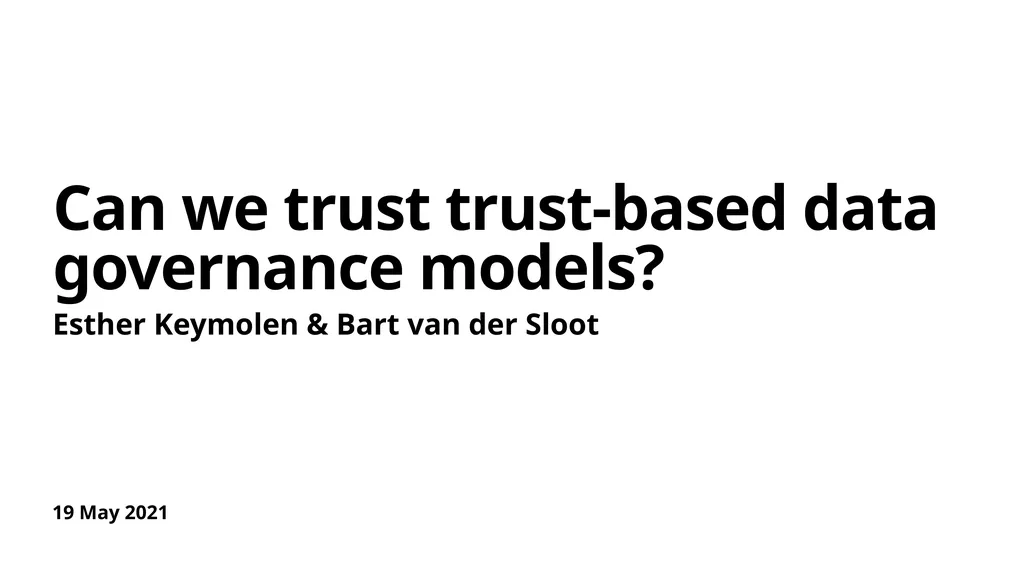
Author : kittie-lecroy | Published Date : 2025-05-29
Description: 19 May 2021 Can we trust trust-based data governance models? Esther Keymolen Bart van der Sloot Regulating personal data Old new models Old models based on control Giving data subjects control over their personal data Legal standardsDownload Presentation The PPT/PDF document "" is the property of its rightful owner. Permission is granted to download and print the materials on this website for personal, non-commercial use only, and to display it on your personal computer provided you do not modify the materials and that you retain all copyright notices contained in the materials. By downloading content from our website, you accept the terms of this agreement.
Here is the link to download the presentation.
"19 May 2021 Can we trust trust-based data"The content belongs to its owner. You may download and print it for personal use, without modification, and keep all copyright notices. By downloading, you agree to these terms.













